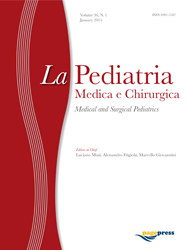The effect of an educational program on illness uncertainty in mothers of children with type 1 diabetes: a quasi-experimental study

All claims expressed in this article are solely those of the authors and do not necessarily represent those of their affiliated organizations, or those of the publisher, the editors and the reviewers. Any product that may be evaluated in this article or claim that may be made by its manufacturer is not guaranteed or endorsed by the publisher.
Accepted: 24 April 2024
Authors
The mother is traditionally the primary caregiver for the child, and uncertainty is a major source of psychological distress for parents of sick children. As a result, the current study sought to investigate the impact of an educational program on illness uncertainty in mothers of children with insulin-dependent diabetes mellitus (IDDM). This is a quasi-experimental study with a pretest-posttest design, involving 40 mothers of children with IDDM. After visiting the research site and recruiting eligible mothers, the researcher used the purposive sampling method to randomly assign them to one of two intervention and control groups. Taking into account their needs and conditions, mothers were scheduled for at least three sessions, with a 30-minute interval every other day. The data analysis revealed no significant differences between the two groups in terms of child age and gender, mother age and education level, number of children, and duration of diabetes. There was a significant difference in the total score of uncertainty, total score of ambiguity, lack of clarity, lack of information, unpredictability, and their dimensions between mothers of diabetic children before and after the intervention (P=0.02). Based on the findings, it is recommended that the educational needs of children and their mothers be assessed upon admission and that educational content be prepared and taught accordingly, thereby helping to reduce illness uncertainty in mothers.
Supporting Agencies
Zabol University of Medical SciencesHow to Cite

This work is licensed under a Creative Commons Attribution-NonCommercial 4.0 International License.






